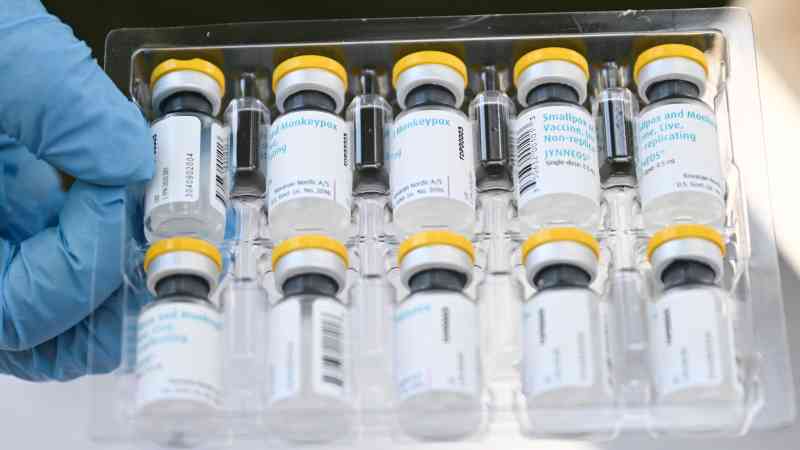Vaccine makers with approved shots for mpox suddenly found themselves in demand from health authorities and investors after the World Health Organisation declared a public health emergency over an outbreak of the disease in Africa.
Shares in Bavarian Nordic, whose jab is the preferred choice of many health authorities, rose by as much as 20 per cent in Copenhagen as markets anticipated a global scramble for the Danish company’s Jynneos vaccine.
It has said that it can provide ten million doses to African countries by the end of 2025. “We have inventory and we have the capabilities. What we’re missing are the orders,” Paul Chaplin, its British chief executive, told Bloomberg.
• What is mpox? Symptoms, vaccine and how the virus spreads
The European Health Emergency Preparedness and Response Authority has ordered more than 175,000 doses of the vaccine to donate to the Africa Centres for Disease Control and Prevention, based in Addis Ababa.
The WHO has declared mpox a global public health emergency for the second time in two years, after an outbreak of the viral infection in the Democratic Republic of Congo that has spread to neighbouring countries. There have been more than 14,000 reported cases and 524 people have died so far this year in Congo.
Shares in Bavarian Nordic, which closed up DKr17.50, or 7.8 per cent, at DKr240.60, have risen by nearly 30 per cent over the past five days. There were gains also for Emergent BioSolutions, an American biopharmaceuticals specialist that acquired a related smallpox vaccine from Sanofi in 2017, and for Tonix Pharmaceuticals, which has an experimental shot in early trials. Moderna and BioNTech, the Covid vaccine makers, are testing new jabs for mpox, with trials due to be completed in the next few months.
A global emergency is the WHO’s highest level of alert and aims to accelerate research, funding and international public health measures and co-operation to contain a disease. Mpox, formerly known as monkeypox, can spread through close contact. Although usually mild, causing flu-like symptoms and lesions on the body, it can be fatal in rare cases.
The virus generally has been confined to central Africa, with outbreaks linked largely to animal exposure. The latest wave suggests that the virus has mutated into a strain capable of spreading more effectively between humans.
